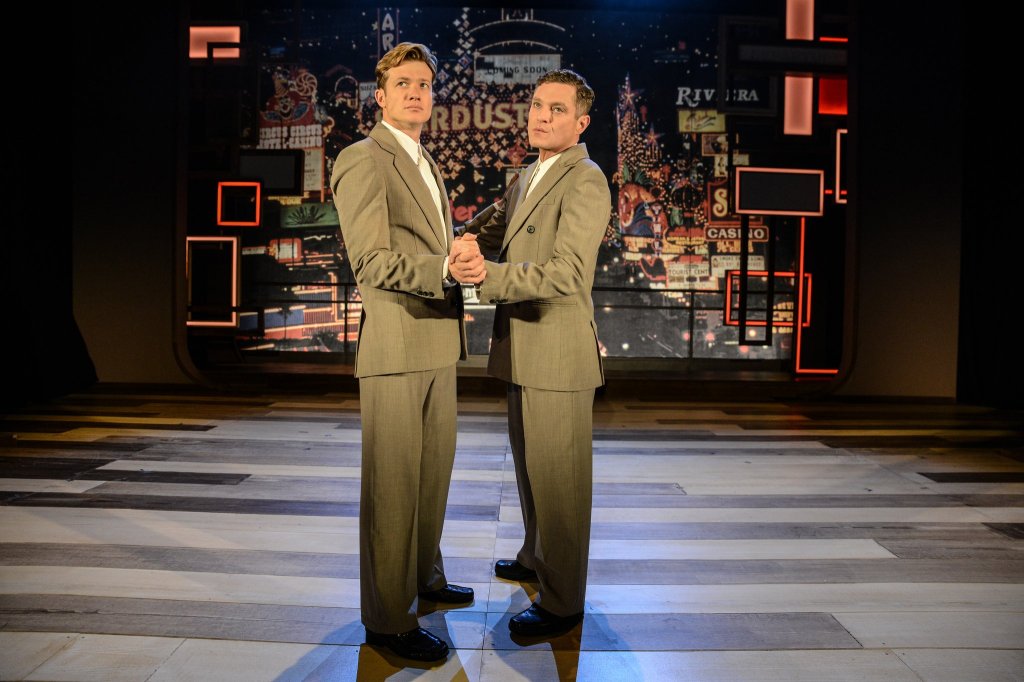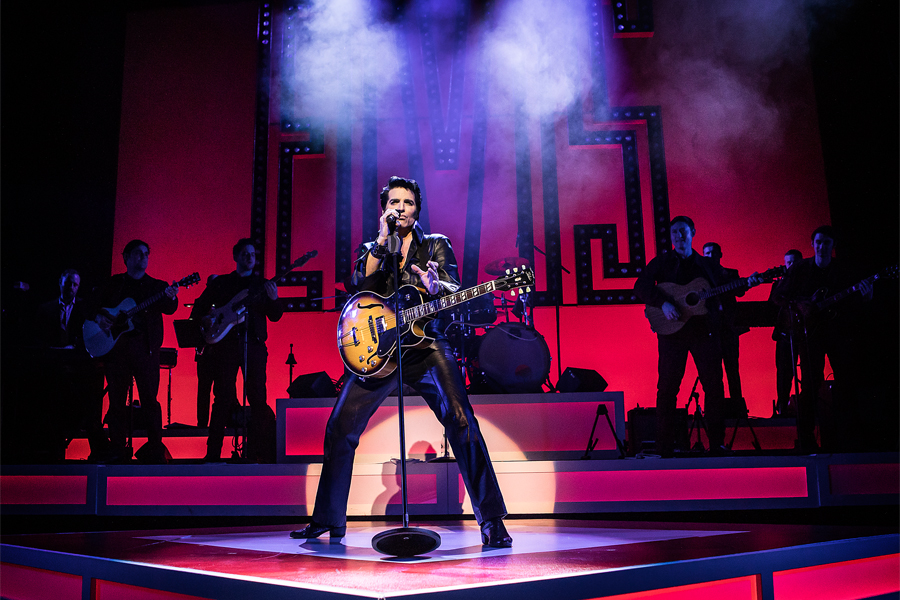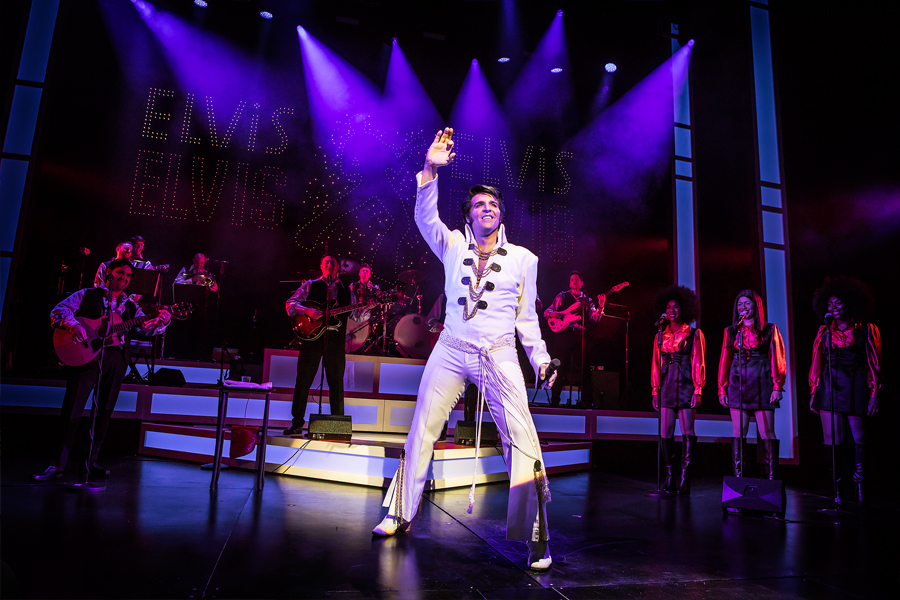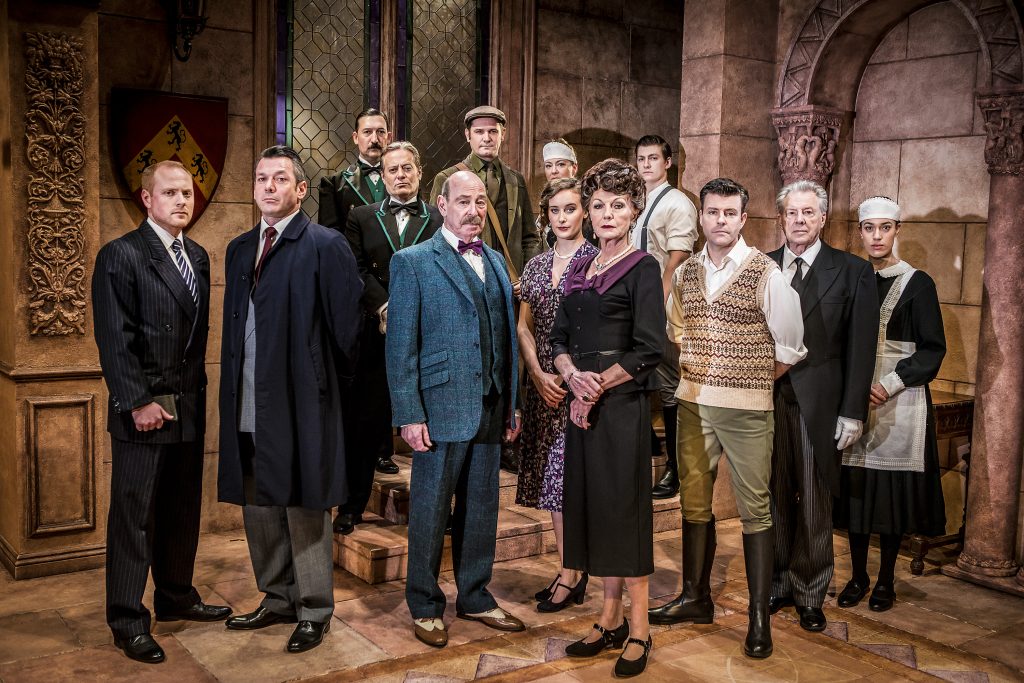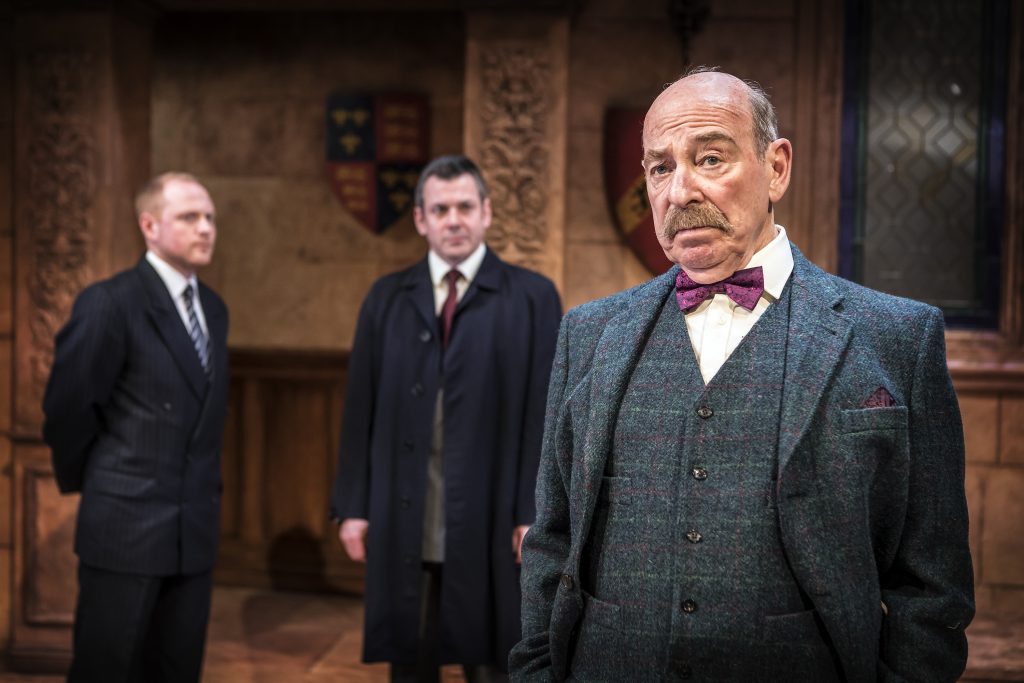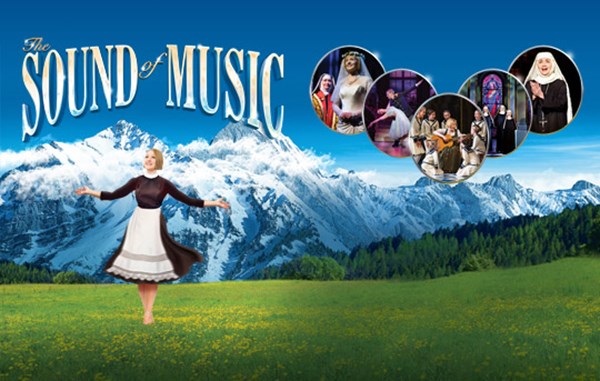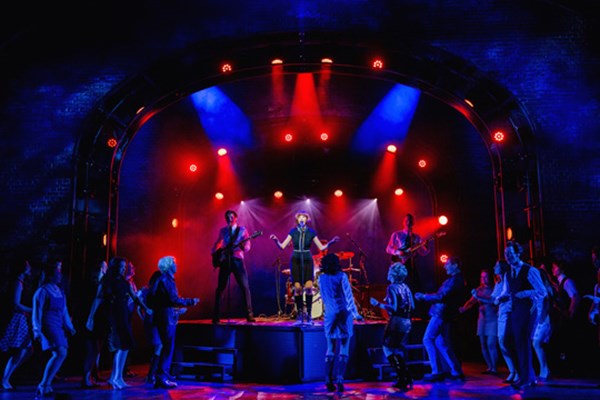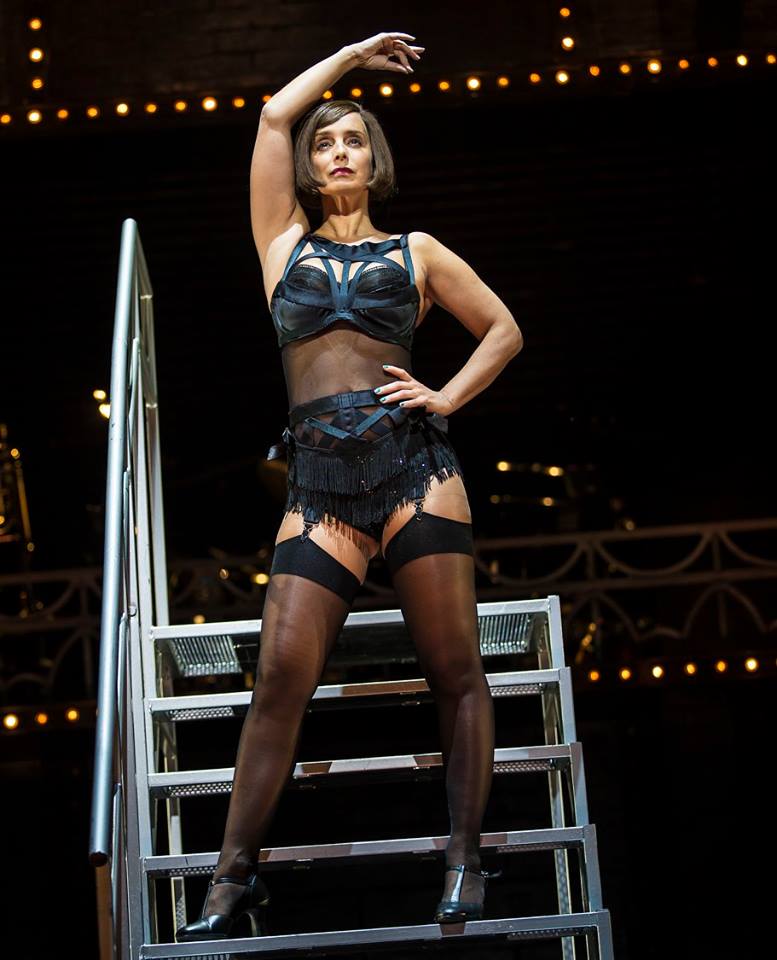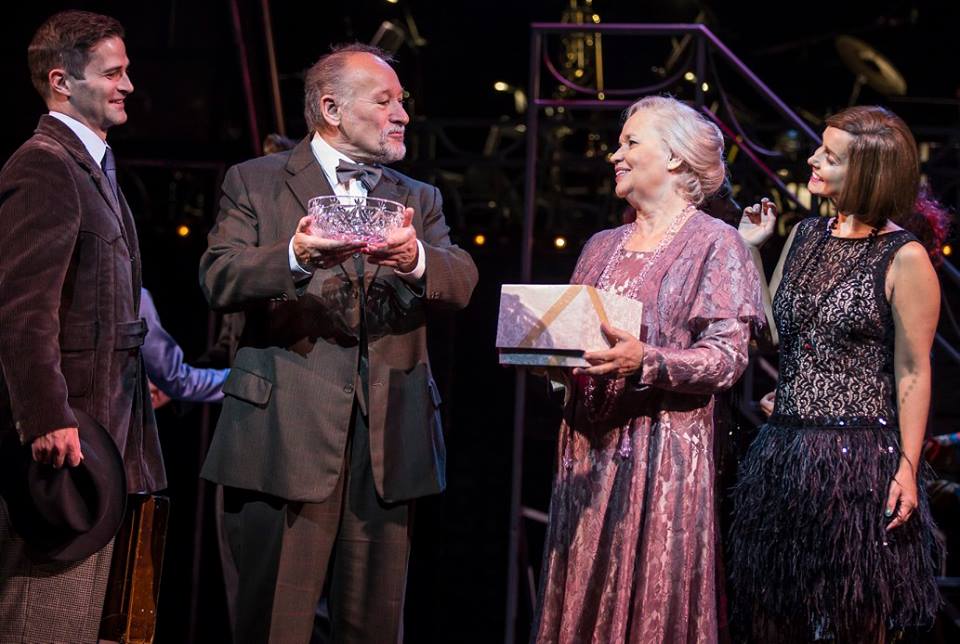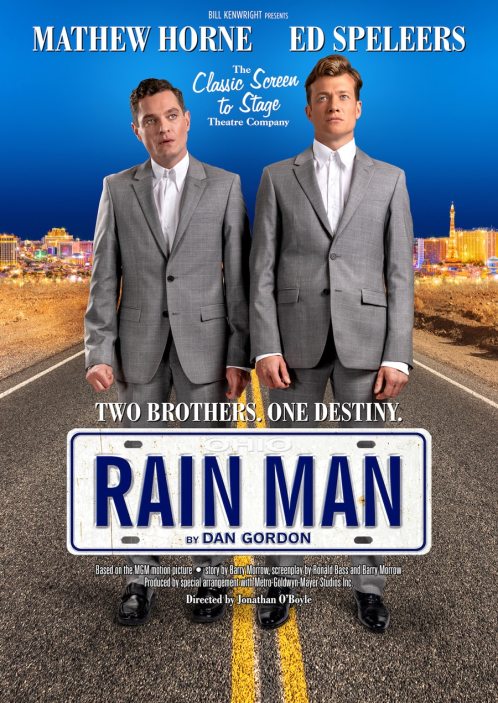
Charlie Babbitt (Ed Speleers) is a highly abrasive wheeler-dealer who – apart from his girlfriend Susan (Elizabeth Carter) – appears to have no emotional connections. The news that his father has died sparks the merest flicker of remembrance – and this is only when he recalls how he left the familial house aged sixteen, never to return.
With his automotive business on the verge of collapse, Charlie could use a piece of the family fortune. But he’s staggered to learn that the three million dollars from his father’s estate has been left to Raymond (Mathew Horne) a brother he never knew he had. Raymond, an autistic savant, has led a highly sheltered life – Dr Bruener (Neil Roberts) doubts that he could ever function outside of the facility he has lived in since childhood.
Charlie decides that half of his brother’s fortune should rightfully be his, and he elects to take him to Los Angeles. Due to Raymond’s fear of flying this necessitates a road trip, which affects both brothers in different ways ….
The inaugural production from Bill Kenwright Ltd’s The Classic Screen To Stage Theatre Company, Rain Man is obviously going to draw comparisons with the 1988 film, but both Speelers and Horne make the parts their own.
Mathew Horne gives a stunning performance. Whether it’s when Raymond is reeling off at breakneck speed a list of impossible things he’s memorised (a chunk of the phone book, say) or simply deadpanning the briefest of lines, Horne is impossible to ignore.
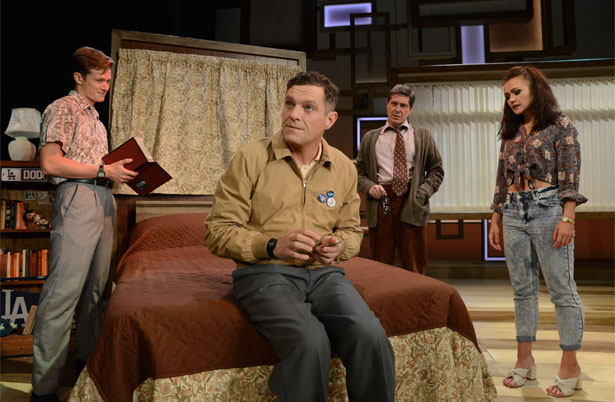
Raymond might be the role with all the fireworks, but Charlie’s part is absolutely key and Speelers is so solid throughout. At times it’s a fairly thankless part – to begin with (basically throughout the whole first act) he’s monumentally unlikeable and incredibly foul-mouthed. The expletives fly thick and fast for a good half hour (I could hear the faint inhalation of breath from those around me when the first “fuck” was uttered).
But Speelers takes it on the chin and (even if you haven’t seen the film) it won’t be difficult to guess that over time Charlie begins to form a real bond with his brother. Their final scene together – the last scene of the play – generated a real “awww” moment from an audience who had seemed gripped all the way along.
Since Charlie is initially such a monster, it’s hard to fathom what a nice girl like Susan is doing with him. This mystery is never answered, but Elizabeth Carter is another who impresses. Regular visitors to the New might be familiar with her (between 2012 and 2017 she appeared in five productions – alternating between Dreamboats and Petticoats and Save The Last Dance For Me). No singing was required today, but there were some lovely dramatic touches (her fiery rage at Charlie, a tender dance and kiss with Raymond).
Indeed, none of the cast disappointed. Several – like Mairi Barclay and Adam Lilley – played multiple roles (Barclay was especially entertaining as Iris the Las Vegas hooker) whilst Neil Roberts, an actor with an impressive list of US TV credits, was gifted several strong scenes.
The staging was pretty simple throughout. The various different locations (motel and hotel rooms, a Las Vegas lobby, offices, etc) were suggested with a handful of props which were quickly wheeled off when the scene was over. But the simplicity of the set dressing did mean that the scene changes were quick and uneventful (which is always a plus).
It seems that standing ovations are a regular occurrence for Rain Man and so it proved once again today, as a substantial and satisfied audience rose to their feet to applaud the players. This is a strong production which is well worth catching, either during its short stay in Cardiff or elsewhere on tour.
